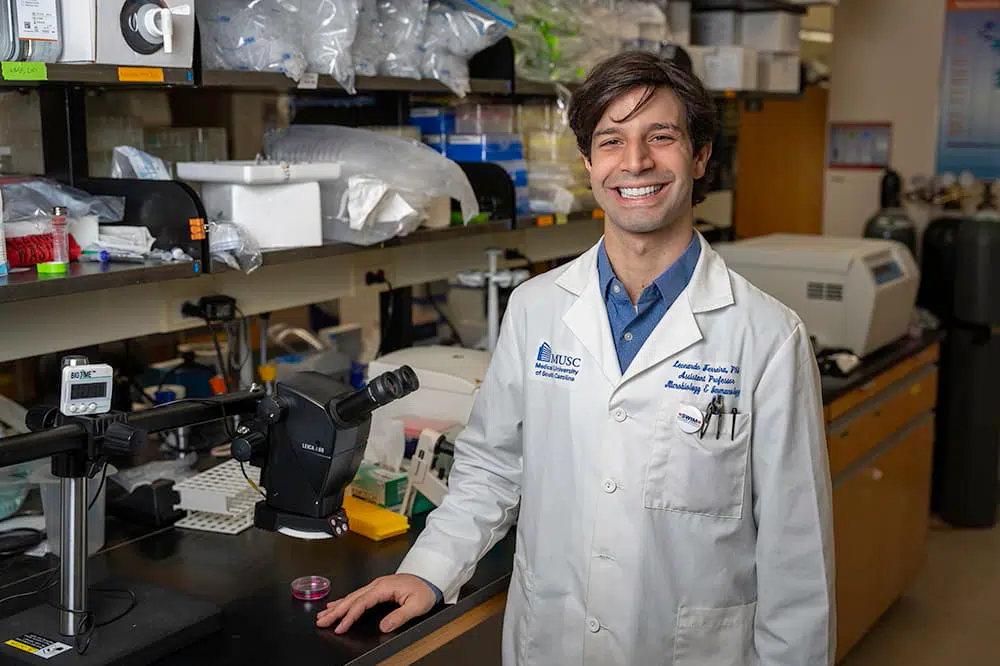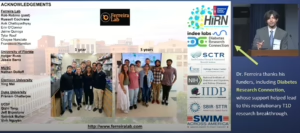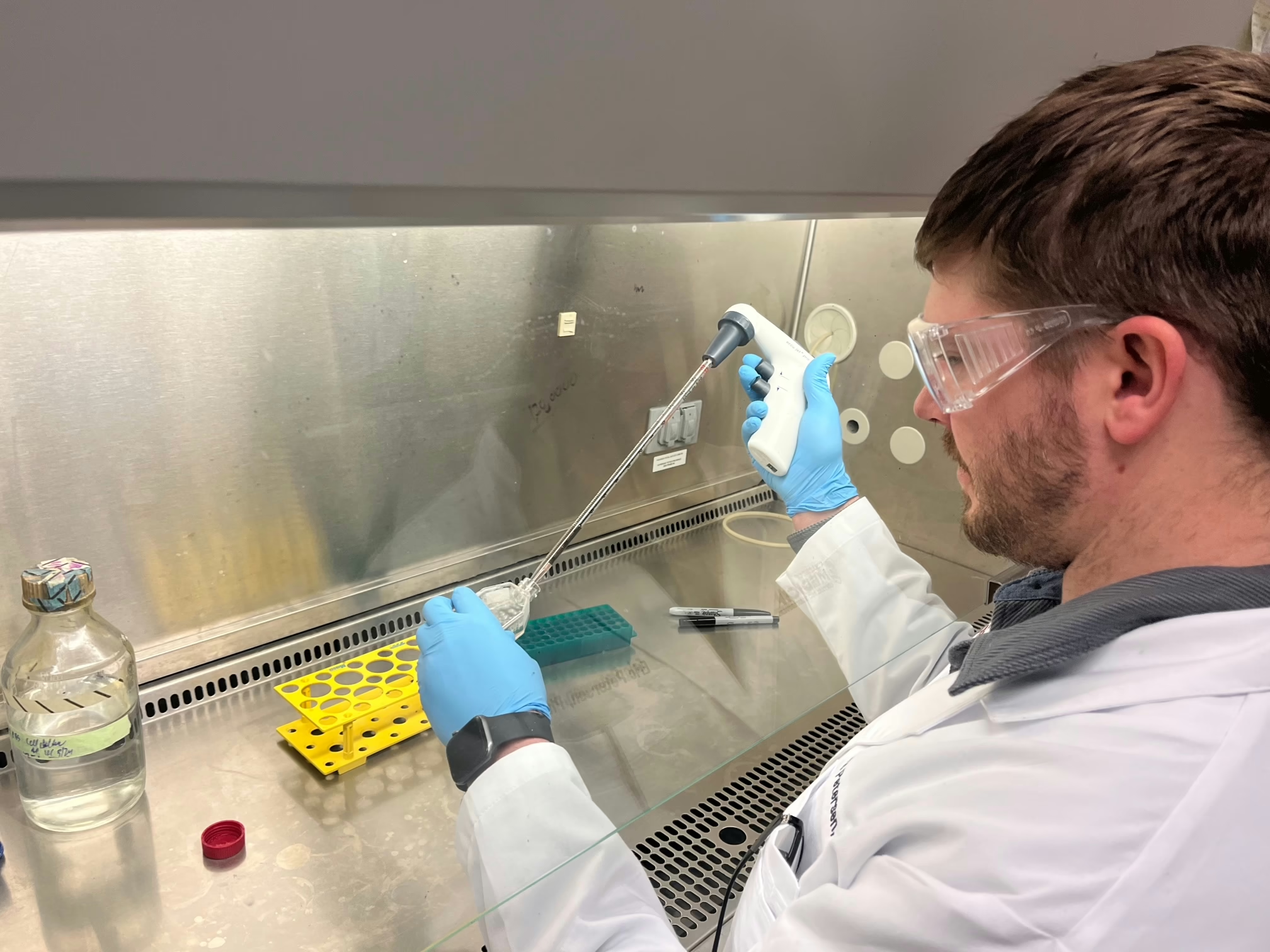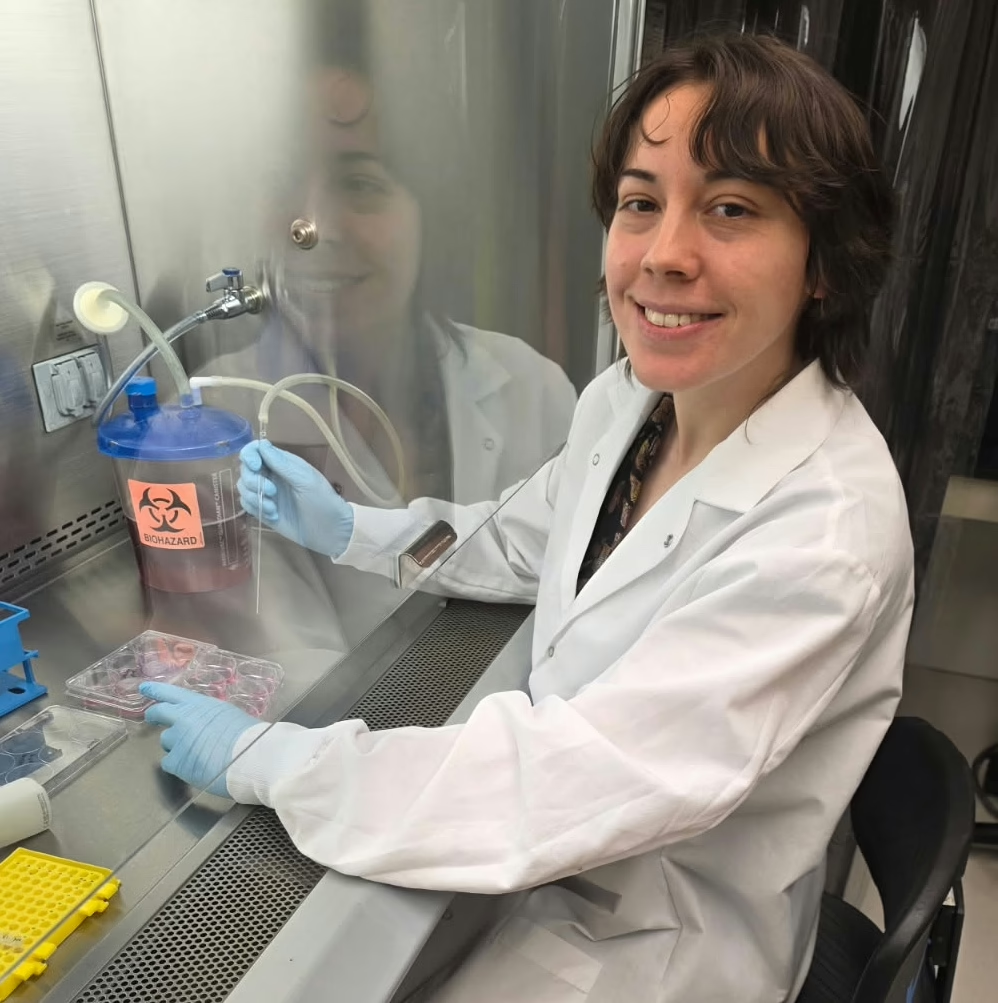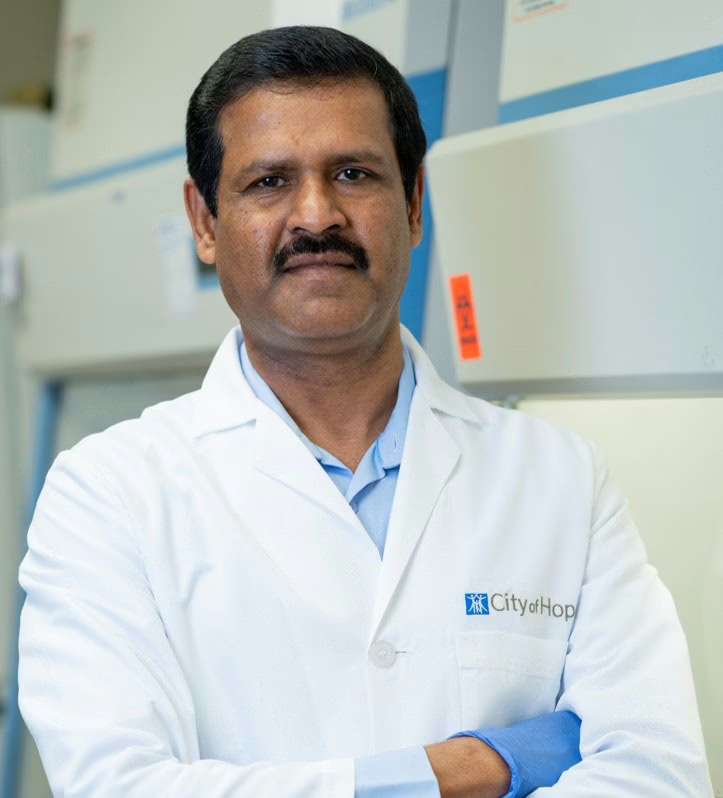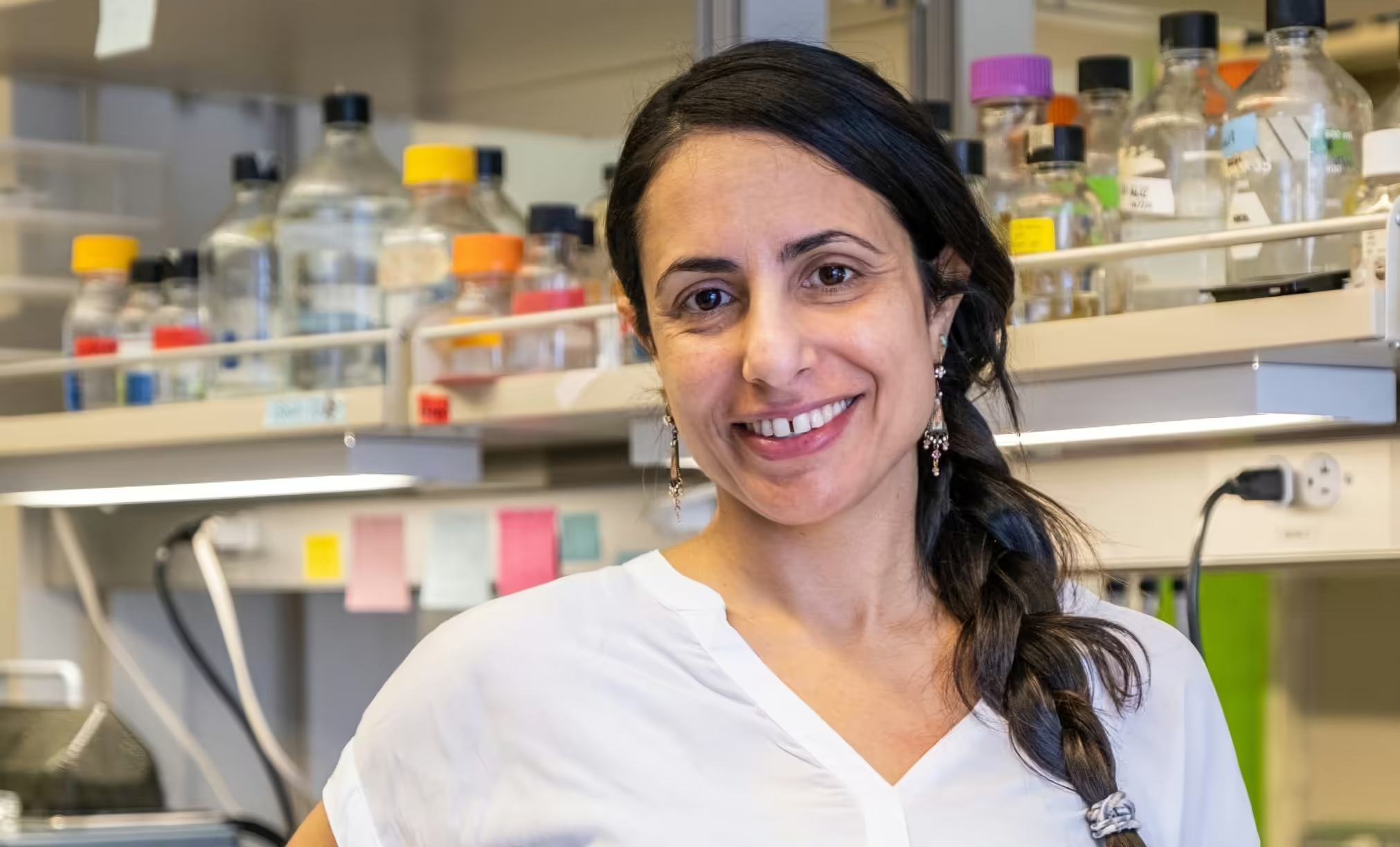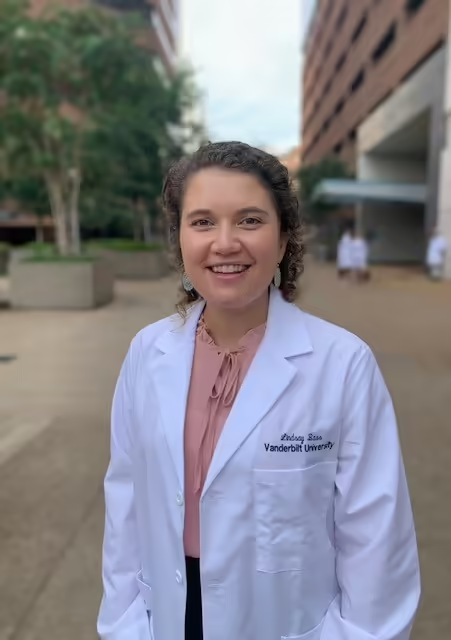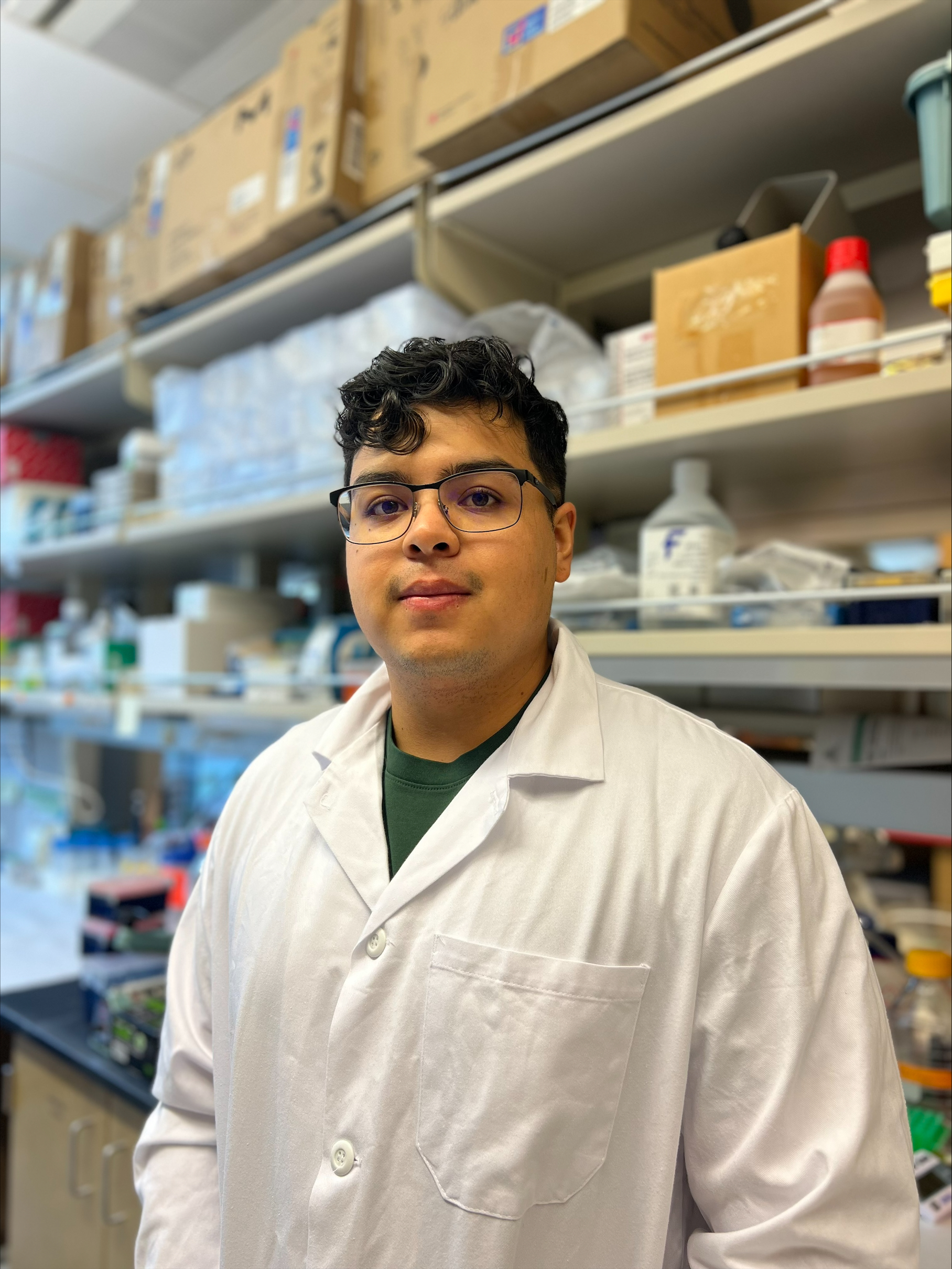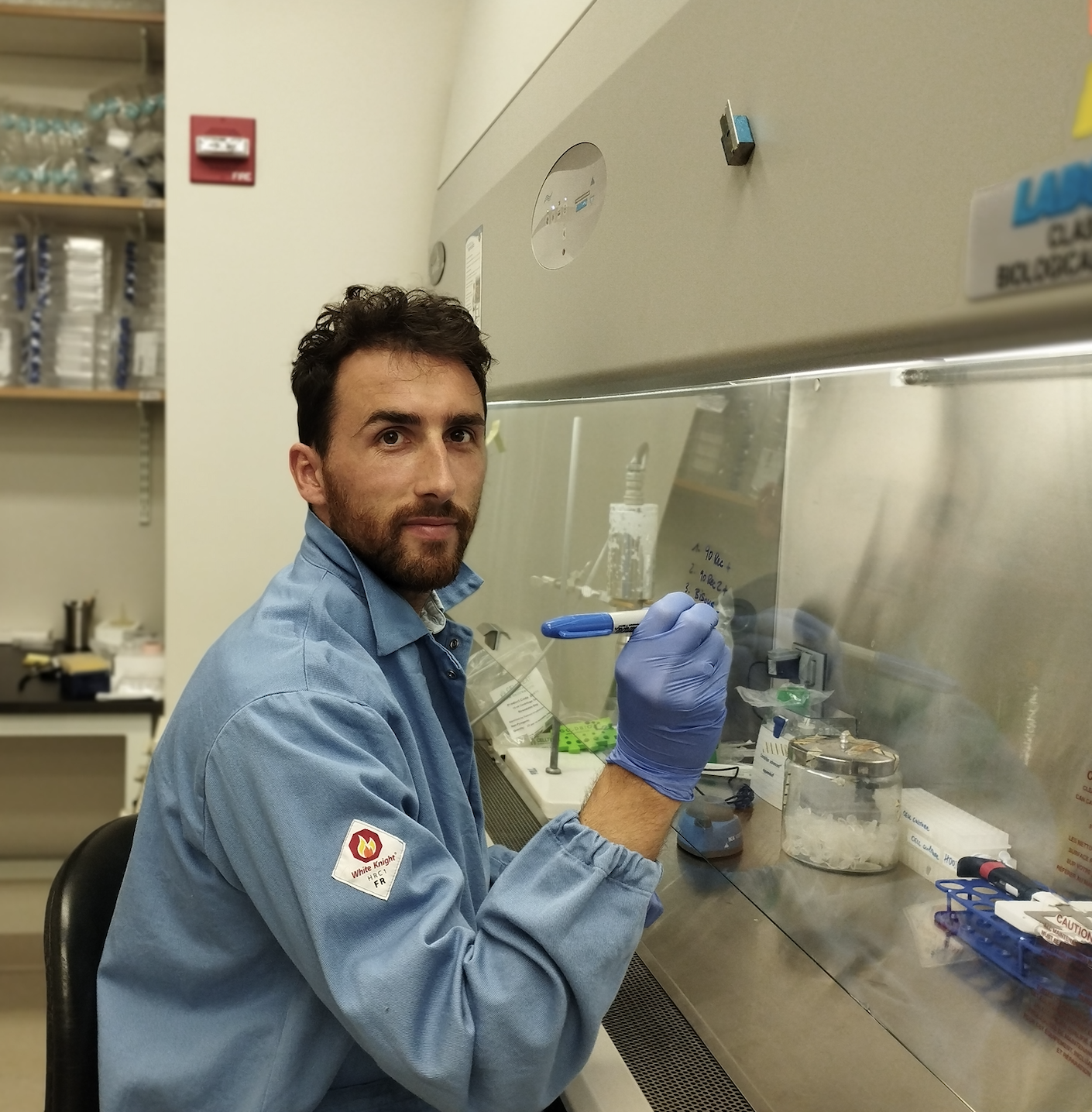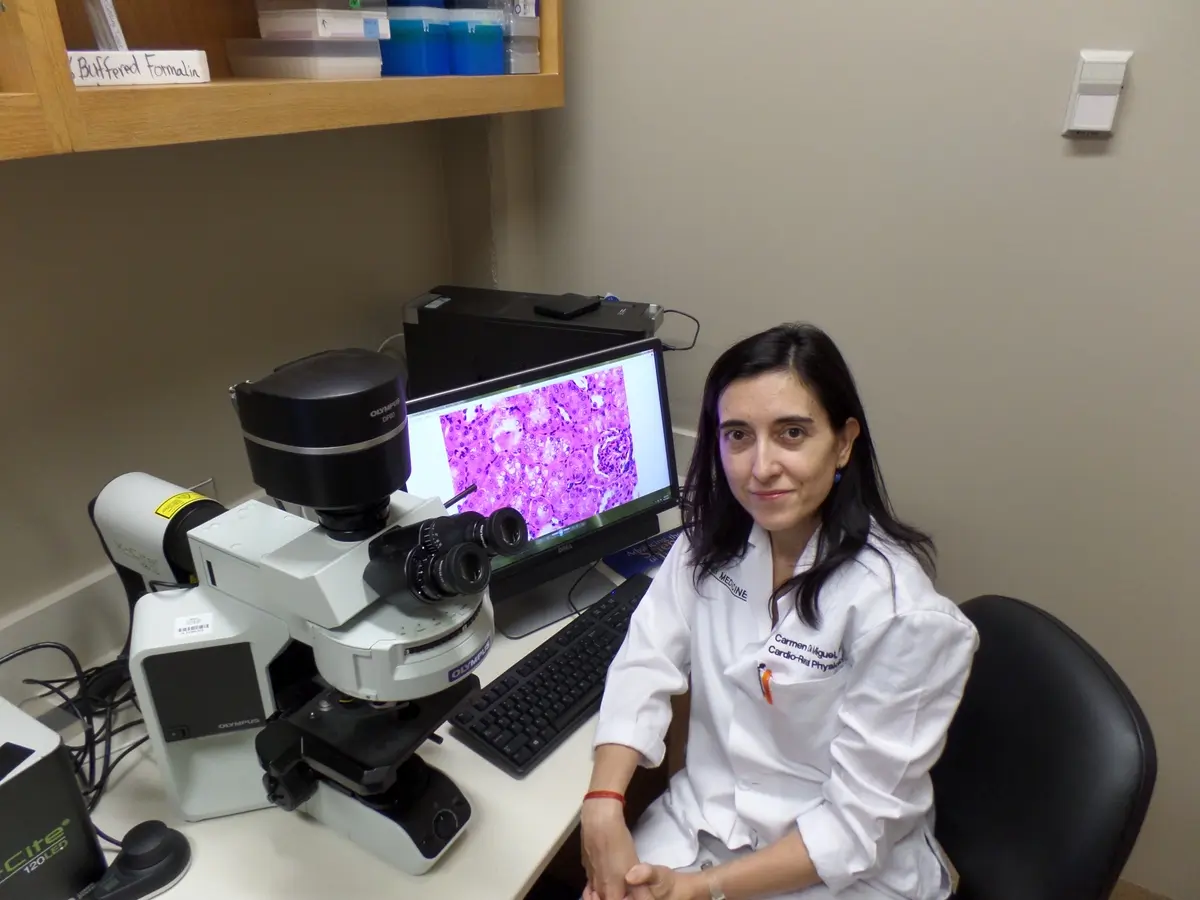Latest Updates
- NIH / NIDDK Presentation by DRC-funded researcher Dr. Leonardo Ferreira
- Revolutionizing Diabetes Care with Immune System Training: Dr. Leonardo Ferreira
Final Project Update
This project focused on engineering primary human regulatory T cells (Tregs) with a chimeric antigen receptor (CAR) to create a therapy for type 1 diabetes (T1D). These CAR Tregs can target and protect transplanted allogeneic beta cells from allogeneic immune rejection and autoimmunity. Yet, finding a unique target protein that is only present in one place and nowhere else is very challenging. Moreover, there is a shortage of high-quality cadaveric primary human islets for transplantation. To circumvent these challenges, we co-engineered stem cells and Tregs so that the engineered Tregs protect engineered stem cell-derived tissues.
Specifically, we genetically modified stem cells to express a unique inert protein ligand on their surface. We then differentiated them into beta cells still expressing that ligand. In parallel, we isolated Tregs (T-Regulatory cells) from blood and genetically modified them with a chimeric antigen receptor (CAR) such that they now recognize the unique ligand on the engineered beta cells. We showed that this dual engineering allows for localized protection from immune attack of ligand-expressing human beta cells by ligand-specific human CAR Tregs in humanized mice. Moreover, we have identified CAR affinity as a key parameter influencing CAR Treg phenotype and function. Ongoing experiments are developing new unique ligands and new CARs specific to those ligands to continue dissecting CAR Treg biology and design the next generation of engineered cell therapies for T1D.
Advancements in T1D research
This project addressed both the beta cell loss and the immune response aspects of type 1 diabetes in this new therapeutic strategy, with some other challenges addressed as well:
1. Shortage of high-quality cadaveric islets -> we used stem cell-derived beta cells, an off-the-shelf inexhaustible resource
2. Islet transplants get rejected by T1D recipients due to allogeneic rejection (the islets and the recipient are not matched) and autoimmunity (the patient’s immune system destroys beta cells) -> we protected the beta cells from immune attack with antigen-specific regulatory T cells (Tregs)
3. Tregs work well when they are antigen-specific, but antigen-specific Tregs are very rare and sometimes the antigen is unknown -> we used chimeric antigen receptor regulatory T cells (CAR Tregs) which can be generated to bind to any surface antigen of choice
4. it is extremely hard to find a single cell surface protein that is present in islets or beta cells and nowhere else in the body -> we modified the stem cells to introduce a unique bait than no other cell in the recipient’s body will have and then made a CAR speciifc to that bait and put it in Tregs
Click HERE to view a summary of his study, as reported by his institution, Medical University of South Carolina.
This project’s findings were published in greater detail here in CELL MAGAZINE.
Publications acknowledging DRC support so far:
Skartsis*, N., Muller, Y.D., Ferreira, L.M.R., 2023. Regulatory T cell homeostasis: requisite signals and implications for clinical development of biologics. Clin Immunol 246:109201
Skartsis*, N., Ferreira, L.M.R., Tang, Q., 2022. The dichotomous roles of TNFa signaling in CD4+ T cells. Front Immunol 13:1042622.
Ghobadinezhad, F., Ebrahimi, N., Mozaffari, F., Moradi, N., Beiranvand, S., Pournazari, M., Rezaei-Tazangi, F., Khorram, R., Afshinpour, M., Robino, R.A., Aref*, A.R., Ferreira*, L.M.R., 2022. The emerging role of regulatory cell-based therapy in autoimmune disease. Front Immunol 13:1075813
Zimmerman, C.M., Robino, R.A., Cochrane R.W., Dominguez, M.D., Ferreira*, L.M.R., 2024. Redirecting human conventional and regulatory T cells using chimeric antigen receptors. Methods Mol Biol 2748:201-241
Barra, J.M., Robino, R.A., Castro-Gutierrez, R., Proia, J., Russ*, H.A., Ferreira*, L.M.R., 2024. Combinatorial genetic engineering strategy for immune protection of stem cell-derived beta cells by chimeric antigen receptor regulatory T cells. Cell Rep 43 (11):114994
Cochrane, R.W., Robino, R.A., Granger, B., Allen, E., Vaena, S., Romeo, M.J., de Cubas, A.A., Berto, S., Ferreira*, L.M.R., 2024. High affinity chimeric antigen receptor signaling induces an inflammatory program in human regulatory T cells. Mol Ther Methods Clin Dev 32(4): 101385
6 Month Update
This project focuses on using HLA-A2 CAR Tregs to protect HLA-A2-expressing human pancreatic islets from rejection in a humanized model of T1D, which this DRC grant was instrumental in setting up in my laboratory at MUSC. This model involves treating immunodeficient NSG mice with streptozotocin (STZ) to eliminate their endogenous beta cells, transplanting (HLA-A2-expressing) human islets into the kidney capsule of these mice, and then infuse them human immune cells. Initially, we sought to induce rejection of transplanted HLA-A2-expressing human islets with peripheral blood mononuclear cells (PBMCs) from HLA-A2 negative human blood donors. Unfortunately, however, we failed to see robust rejection of transplanted HLA-A2-expressing islets and, if enough time (over one month) was given, animals also started suffering from unwanted xenogeneic graft-vs-host disease (GvHD). We thus switched from using PBMCs to using HLA-A2 CAR T cells, which quickly (one week) recognize and destroy transplanted HLA-A2-expressing islets, as I have published before (Muller, Ferreira et al, Front Immunol 2021 PMID: 34616392). Of note, another group has independently made the same observation on PBMC vs. HLA-A2 CAR T and published it recently (Elis et al, Transplantation 2023 PMID: 37528526).
Ongoing and immediate future experiments are focused on testing the capacity of HLA-2 CAR Tregs to protect HLA-A2-expressing human islets from HLA-A2 CAR T cell-mediated rejection in NSG mice (Aim 1). This DRC grant has also been important in helping to set up and enhance human CAR Treg and CAR T cell generation and testing in my laboratory at MUSC, including assessing the impact of CAR signaling modulation in CAR Treg function (Aim 2). I expect to publish 2-3 research articles in 2024 acknowledging DRC support (one of which was submitted in December 2023).
Project Description
Type 1 diabetes (T1D) is the most common form of diabetes in infants and adolescents, affecting over one million Americans. It happens when the immune system targets the patient’s own insulin-producing pancreatic islet cells for destruction. Commonly, T1D is treated by life-long insulin supplementation. The only cure for T1D is a whole pancreas or pancreatic islet transplant. Yet, this procedure requires life-long immunosuppression to prevent immune rejection and autoimmunity. Therefore, it would be necessary to prevent the immune system from turning against its own body. What if we could re-educate the patient’s immune system to accept pancreatic islets?
The immune system uses different T cell (thymocytes) types to recognize, fight and neutralize foreign substances. Autoimmune diseases, such as T1D, occur when the immune response is directed against the body itself. Regulatory T cells (Tregs) are a rare subset of T cells dedicated to limiting unwanted and excessive immune responses. Infusing T1D patients with Tregs is safe. But Tregs that are not specific for pancreatic islets are unlikely to treat T1D, as only a small percentage of the infused Tregs recognizes disease-relevant molecules. Islet-specific Tregs are significantly more potent suppressors compared to bulk Tregs which represent a mix of many specificities. However, while islet-specific Tregs prevent and even reverse autoimmune diabetes in preclinical studies in mice, they are exceedingly rare.
To get around this challenge, we are engineering islet-specific chimeric antigen receptor (CAR) and introducing them in human Tregs to re-establish immune tolerance in T1D. A CAR is an artificial receptor that can be designed to recognize any protein on the surface of a cell and activate T cells upon binding to that target protein. Previously, we created a CAR specific for HLA-A2, a protein found in 30% of the population. We showed that anti-HLA-A2 CAR Tregs can recognize HLA-A2 positive pancreatic islets in preclinical studies in mice and block T cell proliferation, a key step in the immune response.
Can engineered anti-HLA-A2 CAR Tregs prevent human pancreatic islet rejection? We will use special mice, so-called humanized mice, to test whether human anti-HLA-A2 CAR Tregs can protect human HLA-A2 positive pancreatic islets from immune attack by human killer T cells. To test this, we will evaluate pancreatic islet graft survival, blood sugar levels, and killer T cell infiltration in the pancreatic islet graft. In order to maximize CAR Treg therapy, we will compare different versions of the anti-HLA-A2 CAR artificial receptor differing in their protein structure, aiming to improve anti-HLA-A2 CAR Treg growth, stability, and suppressive capability.
This project focuses on the root cause of T1D which is the autoimmune attack of pancreatic islets by T cells. We will genetically engineer human Tregs to tolerate the immune system in pancreatic islets, which has not been accomplished to date. Thanks to this generous funding opportunity from the Diabetes Research Connection, my laboratory at the Medical University of South Carolina will be able to obtain much-needed preclinical data to help realize the promise of immune therapy for T1D.
Click HERE to view Dr. Leonardo Ferreira’s video.

